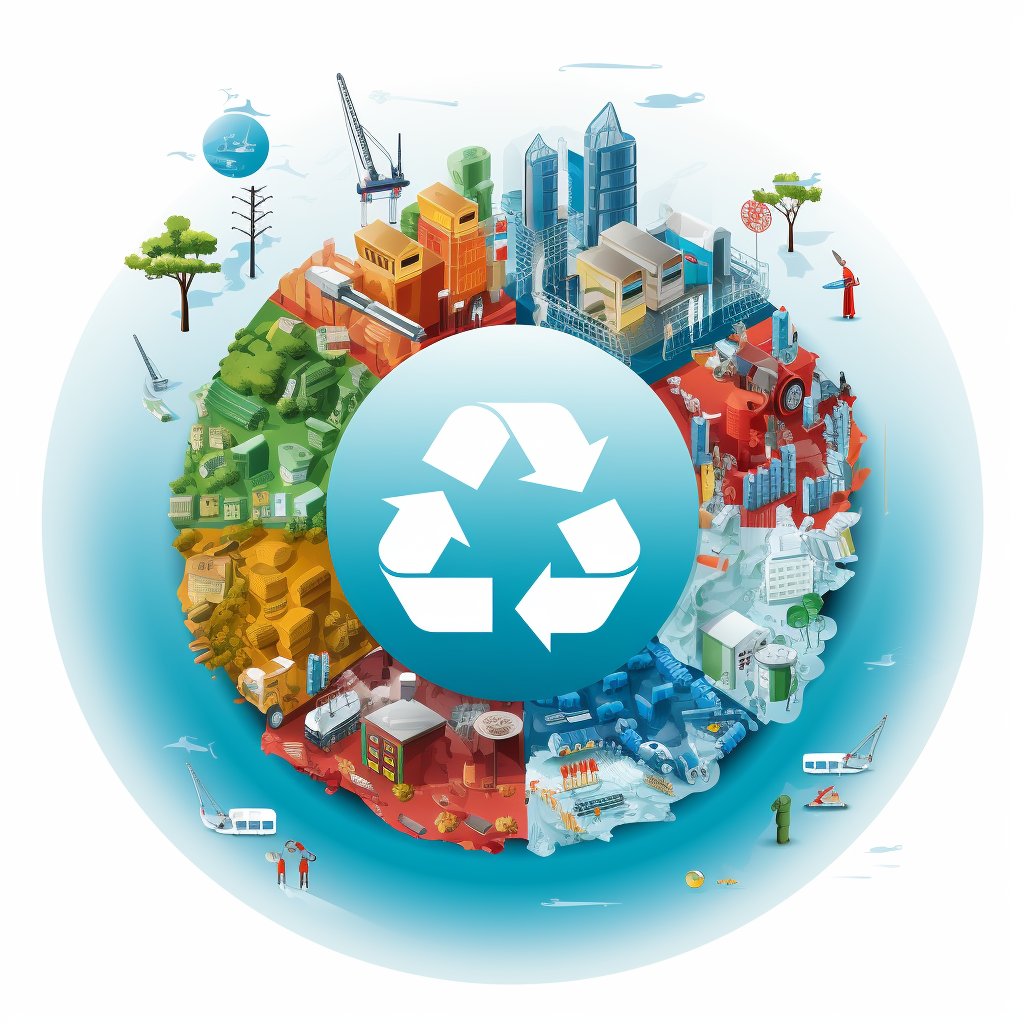The world is producing an enormous amount of waste every day. The traditional waste management methods must be revised to cope with the ever-increasing amount of waste. However, with the rise of digital technologies, a new solution to the waste management problem has emerged – digitisation of waste management.
As the world grapples with the challenges of waste management, advances in digitisation are transforming the industry. Integrating advanced technologies such as sensors, AI, and machine learning revolutionises waste collection, sorting, and recycling processes. This has the potential to improve the efficiency of waste management, reduce the amount of waste going to landfill, and create new business opportunities in the recycling and repurposing of waste.

Industrial Usage of Digitisation of Waste Management
The industrial sector has been an early adopter of the digitisation of waste management. The use of Internet of Things (IoT) devices, sensors, and artificial intelligence (AI) have made it possible to monitor waste generation, disposal, and recycling in real time. For example, intelligent bins equipped with sensors can detect when they are complete and alert the waste management company to schedule a pickup.
Another example of digitisation of waste management in the industrial sector is using blockchain technology to track waste. Blockchain provides a secure and transparent way to track waste from its origin to its final destination, ensuring that waste is disposed of in an environmentally responsible way.
Application Areas of Digitisation of Waste Management
The digitisation of waste management is wider than the industrial sector. It has a wide range of applications in other sectors as well. For example, in the healthcare sector, hotels and restaurants can use smart bins to monitor waste and reduce environmental impact.
Consumer Product Examples
Digitisation of waste management has led to the development of new consumer products. Smart recycling bins can sort waste automatically. They use AI and machine learning algorithms to identify different types of waste and sort them accordingly. This not only makes recycling more efficient and convenient.
Material Properties
The digitisation of waste management has also led to the development of new materials with unique properties. For example, recycled plastic can be used to create new products with different properties than traditional plastic. Recycled plastic can be made stronger, more flexible, or more durable, depending on the needs of the product.
Future Trends in Recycling
The digitisation of waste management is still in its early stages, but it is expected to grow rapidly in the coming years. One of the key trends in recycling is using AI and machine learning algorithms to improve the efficiency of waste sorting and recycling. This will reduce the environmental impact of waste and create new business opportunities in the recycling industry.
Another trend in recycling is the use of advanced technologies to create new materials from waste. For example, researchers are exploring the use of 3D printing to create new products from recycled plastic. This could lead to a new era of sustainable manufacturing, where waste is turned into new products instead of discarded.
Different Digitisation of waste management
In addition to the industrial usage, application areas, consumer product examples, and material properties of digitisation of waste management, it is also important to consider its market price developments, global impact, and future market prognosis.
Market Price Developments
Digitisation of waste management is expected to impact the market prices of recycled materials significantly. The use of advanced technologies to sort and recycle waste will reduce the cost of recycling, making recycled materials more competitive with virgin materials. This could lead to a shift in the market towards more sustainable materials and products.
Global Impact
The digitisation of waste management has the potential to impact the global environment significantly. Improving the efficiency of waste management and increasing the amount of waste that is recycled will help reduce the environmental impact of waste. This, in turn, will contribute to achieving the United Nations Sustainable Development Goals, particularly Goal 12: Responsible Consumption and Production.
How Digitisation of waste management around the world impacts environmental and economical
Digitisation of waste management is a growing trend worldwide, with many countries and regions implementing advanced technologies to improve waste management processes. The environmental and economic benefits of digitisation of waste management are significant, and these benefits are driving the market’s growth.
Environmental Benefits
One of the primary environmental benefits of digitisation of waste management is the reduction of waste going to landfill. Advanced technologies such as sensors, IoT devices, and AI can help to sort and separate waste more efficiently, increasing the amount of waste that can be recycled or repurposed. This reduces the amount of waste that goes to landfill, reducing greenhouse gas emissions and reducing the environmental impact of waste.
Another environmental benefit of digitisation of waste management is the reduction of pollution. Reducing the amount of waste going to landfill reduces the risk of pollutants leaching into the environment. This is particularly important in areas with high population densities where landfill sites can be a significant source of pollution.
Economic Benefits
The economic benefits of digitisation of waste management are also significant. By increasing the amount of waste that can be recycled or repurposed, businesses can reduce their reliance on virgin materials, reducing their costs and increasing their sustainability. This can also create new business opportunities in the recycling and repurposing of waste.
Digitisation of waste management can also reduce the cost of waste management for local governments. Local governments can save money on waste disposal and management by reducing the amount of waste going to landfill and increasing the efficiency of waste management processes.
Global Examples
Digitisation of waste management is being implemented worldwide, with many countries and regions leading the way in this area. For example, in Europe, the EU has set targets for recycling municipal waste, with a goal of recycling 65% of municipal waste by 2035. This has led to the implementation advanced waste management technologies in many European countries.
In the United States, many cities are implementing smart waste management systems that use sensors and IoT devices to improve the efficiency of waste collection and reduce the amount of waste going to landfill. These systems have been shown to reduce costs and improve environmental outcomes.
In Asia, countries such as Japan and South Korea are leaders in waste management. These countries have implemented advanced technologies and innovative approaches to waste management, resulting in high levels of recycling and low levels of waste going to landfill.
The Digitisation of waste management
The digitisation of waste management is transforming the recycling industry and creating new business opportunities. The use of IoT devices, sensors, and AI has made it possible to monitor waste generation, disposal, and recycling in real time, while the use of blockchain technology provides a secure and transparent way to track waste. Digitisation of waste management has also led to developing new materials with unique properties. The use of advanced technologies to create new products from waste is a crucial trend in recycling. As we move towards a more sustainable future, digitisation of waste management will play an increasingly important role in reducing our environmental impact.
The Digitisation of waste management is a growing trend worldwide, with many countries and regions implementing advanced technologies to improve waste management processes. The environmental and economic benefits of digitisation of waste management are significant, driving the growth of the market. By reducing the amount of waste going to landfill, increasing the efficiency of waste management processes, and creating new business opportunities, digitisation of waste management is helping to create a more sustainable future.






